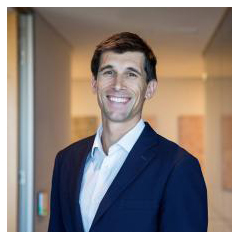Insights
Organizations in an Era of Change
Technological advancements are accelerating the pace of change creating new roles and replacing a wide array of workforce tasks. To remain competitive, organizations must employ leaders who are positioned to adapt and respond to change quickly.
We spoke with Oliver Bladek, Leader of McKinsey's Organization Practice in Australia and New Zealand, who will be leading a session on The Future of Organizations at our Elevate 2017 Conference in Sydney next week. Working at McKinsey since 2004, Oliver counsels CHROs on top strategic issues including delivering value throught talent, organisational agility and the workforce of the future. Here, he shares how organizations and advisors can work through shifting times.
 At McKinsey, you counsel clients on top strategic issues and see how technology—specifically automation and digitalization—are disruptors for organizations. How can organizations position themselves to be successful in an era of change and disruption?
At McKinsey, you counsel clients on top strategic issues and see how technology—specifically automation and digitalization—are disruptors for organizations. How can organizations position themselves to be successful in an era of change and disruption?
There has been a lot of talk about organizational “agility” as a way for organizations to be more equipped to handle change and disruption. We think of agility as where a company has both a strong backbone (stability), and dynamic capability (speed). Every HR leader I speak to is struggling with how to get speed and stability, where previously it felt like an “or”.
Next, the discussion then jumps quickly to the end state – imagine what it could look like (and the value we could unlock) if we managed in an agile way. However, the first step is often where companies get unstuck. How do I relax some of the “stability” in order to get a bit more speed? What business areas (or leaders) are more ready to pilot and experiment with agile – where they get more control by giving up control? Even more basic – are we clear on the kind of company we want to become, and what role leaders and talent play within that?
While there is no silver bullet for the above, there is a common set of behaviours we see across companies that are faring better in succeeding through disruption. First, they tend to have a bias for action and are comfortable driving action (and decisions) forward in the face of ambiguity and uncertainty. These companies have tolerance with failing fast, and potentially challenging existing practices. One board member recently remarked to me: “It’s better that we cannibalise our self than have others do it on our behalf”. Second, they believe in the free-flow of information – across units, bottom-up, top-down, and bringing in external ideas.
Leaders need to be prepared for change and are looking to consultants to partner as trusted advisors through complex times. How could disruption change the role of advisors?
I’m curious to learn the audience’s perspective! In my view, it’s important to understand what’s expected of leaders through this disruptive time. I find Ron Heifetz’s perspective of “technical versus adaptive” leadership to have a good framework to describe what is required. Historically, leaders (and advisors) have been successful in solving “technical” problems – those that are important and complex but can essentially be taught (e.g., how to land an airplane in a cross-wind, or re-designing a company’s FP&A function). More and more of our world’s problems are “adaptive” – not necessarily more or less complex, but where there isn’t any reliable and well-tested method. These types of problems can’t be learned in a classroom, but require leaders to have more transformative skills, often including empathy and self-awareness. Of course there is no shortage of literature or TED talks around what it takes.
So it may be a given that advisors, like the leaders they serve, adapt their operating models to these new challenges. However, what I find separates good from great is the ability to ‘land the airplane’. Too often (particularly in the Human Capital realm), leaders will continue to keep the problem open, suggest new ways of thinking, or continue to opine on the question at hand. What I think clients are looking for is that insight, but also the ability to cut through and make an informed recommendation that is actionable, practical, and more right than wrong.